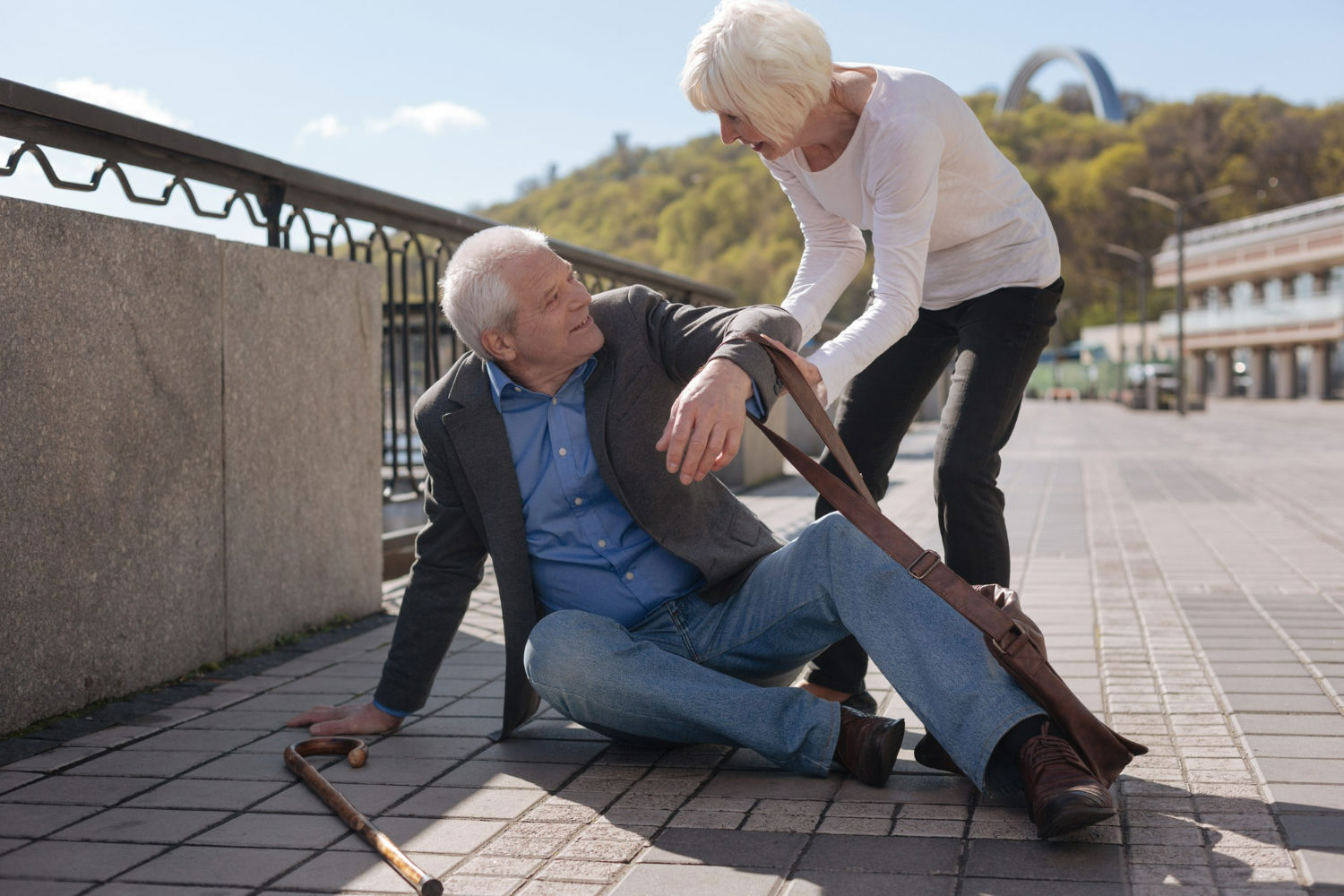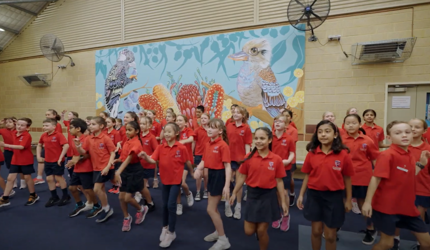
A fall takes a split second to happen, but the consequences can be long-lasting. In this series of articles, we’ll look at:
• Why it’s important to take the risk of a fall so seriously
• How to prevent a fall
• What happens after a fall occurs.
What is a fall?
The definition of a fall is any “unexpected event in which a person comes to rest on the ground, floor or a lower level”.
Falls can happen for a variety of reasons, like tripping over a rug, due to ill-fitting footwear, experiencing a loss of vision or consciousness, becoming unbalanced, or as a result of symptoms associated with a long-term health condition, like low blood-pressure, dementia, or medication side effects.
How serious can a fall be?
Falls are already the leading cause of injury hospitalisations and injury fatalities in Western Australia.
According to the WA Department of Health’s 2023 WA Falls Report[1], in 2020 a West Australian died every 19 hours due to a fall. In 2021, a West Australian was hospitalised every 15 minutes with a fall injury.
Not only does the risk of falling increase as we age, but the potential consequences become more serious, too. People aged 85 years or older can expect to spend 9.1 days in the hospital after a fall, compared to an average 7.1 days.
Why are we so concerned about falls?
Brightwater Senior Physiotherapist Claire Myhill said falls carry a risk of serious injury for older people. It can also cause a loss of confidence that can have long-term consequences for the individual.
“At times the injury sustained —whether it’s a fracture, a head injury, a tendon tear— impacts an older person’s quality of life and their capacity to be functional, independent, and carry on living their life as they would like to” she said.
“A fall can precipitate a functional or cognitive decline— someone may lose the capacity to look after themselves and require home or residential care. That’s why one of the number one priorities in aged care is preventing falls. Sustaining a fall without major complications, however, can also be the point at which an older person seeks medical and allied health input and so can experience an improvement in strength, balance and function as a result.
Why are older people more at risk of a fall?
Data from the Federal Government’s HealthDirect shows one in four people who are aged 65 or over have at least one fall per year.
As we age, we are more likely to have a fall because:
• We find it more difficult to balance
• Our muscles weaken, which can make it harder to lift our feet
• Our eyesight is likely to be poorer
• Our reaction times are slow
• We’re likely to have more health problems, which can contribute to a fall
• Memory loss, confusion, dementia and Alzheimer’s disease can contribute to a fall.
Can I reduce the risk of experiencing a fall?
Claire said the risk of a experiencing a fall can be significantly reduced with allied health and medical input. Sometimes an older person loses confidence in their ability to do the things they used to do.
“Often someone stops doing things because they feel unsteady,” she said. “Balance and the ability to maintain one’s balance is controlled through the brain and the sensory and the motor nervous systems. Stopping activities and exercise causes a further reduction in balance and increases the risk of falling. But the moment someone starts to do appropriate exercises the neural pathways are activated; a persons’ balance and strength improve and risk of experiencing a fall is reduced. And they can get back to doing what they love to do safely. That’s the beauty of it!”
To find out more about how to prevent falls, continue to the next article.
[1] Injury Matters: Sweeney, R., Menezes, S. and Meade, R. (2023). 2023 Western Australian Falls Report. Perth, Western Australia: Injury Matters.



